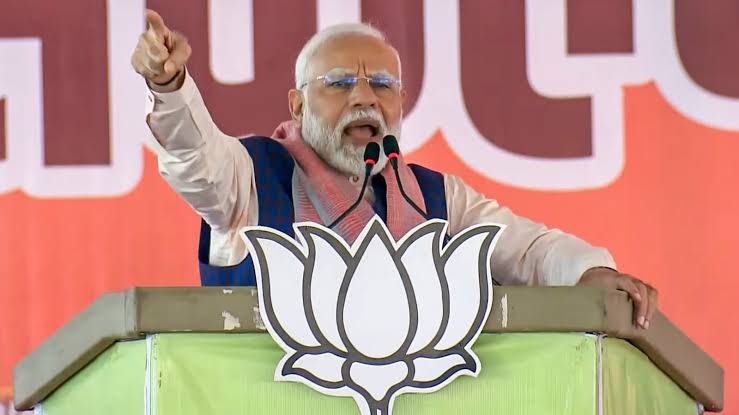Prime Minister Narendra Modi, in a compelling address during the Rajya Sabha session on Thursday, accused the Congress party of systematically sidelining Dr. B.R. Ambedkar, asserting that their actions against the social reformer are well-documented. His remarks came during the debate on the Motion of Thanks to the President’s Address, where he strongly criticized the Congress for what he described as a deep-seated aversion towards Ambedkar.
 Modi stated that whatever Ambedkar said often put him at odds with the Congress, leading to repeated attempts to politically marginalize him. He alleged that the Congress left no stone unturned to ensure Ambedkar’s defeat in elections and failed to recognize his contributions by not awarding him the Bharat Ratna during his lifetime. “Everything is backed by documents… It can be authenticated. Congress could not tolerate him and did not consider him fit for Bharat Ratna,” Modi emphasized.
Modi stated that whatever Ambedkar said often put him at odds with the Congress, leading to repeated attempts to politically marginalize him. He alleged that the Congress left no stone unturned to ensure Ambedkar’s defeat in elections and failed to recognize his contributions by not awarding him the Bharat Ratna during his lifetime. “Everything is backed by documents… It can be authenticated. Congress could not tolerate him and did not consider him fit for Bharat Ratna,” Modi emphasized.
The Prime Minister also took a dig at the Congress’s political ideology, arguing that the party’s structure and priorities are fundamentally incompatible with inclusive development. Referring to the BJP’s guiding principle of Sabka Saath, Sabka Vikas (development for all), Modi suggested that such an approach is beyond Congress’s political framework. He accused the party of fostering a political model centered around dynasty, appeasement, and misinformation, which, in his view, makes genuine inclusive development impossible.
“From Congress, to expect Sabka Saath, Sabka Vikas is a mistake. Their politics has always been about putting family first. Their policies, speeches, and actions revolve around one central idea—their dynasty,” Modi remarked, intensifying his critique of the opposition.
His comments reflect an ongoing battle over historical narratives and political legacy, particularly concerning figures like Ambedkar, who played a crucial role in shaping modern India. While the Congress has often positioned itself as a champion of Ambedkar’s ideals, Modi’s remarks sought to challenge that claim, drawing attention to what he described as historical injustices.
This exchange comes at a time when political debates in India continue to be shaped by historical interpretations and legacy battles, with leaders invoking the past to define the present and future course of governance.




